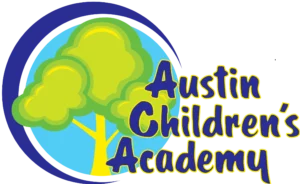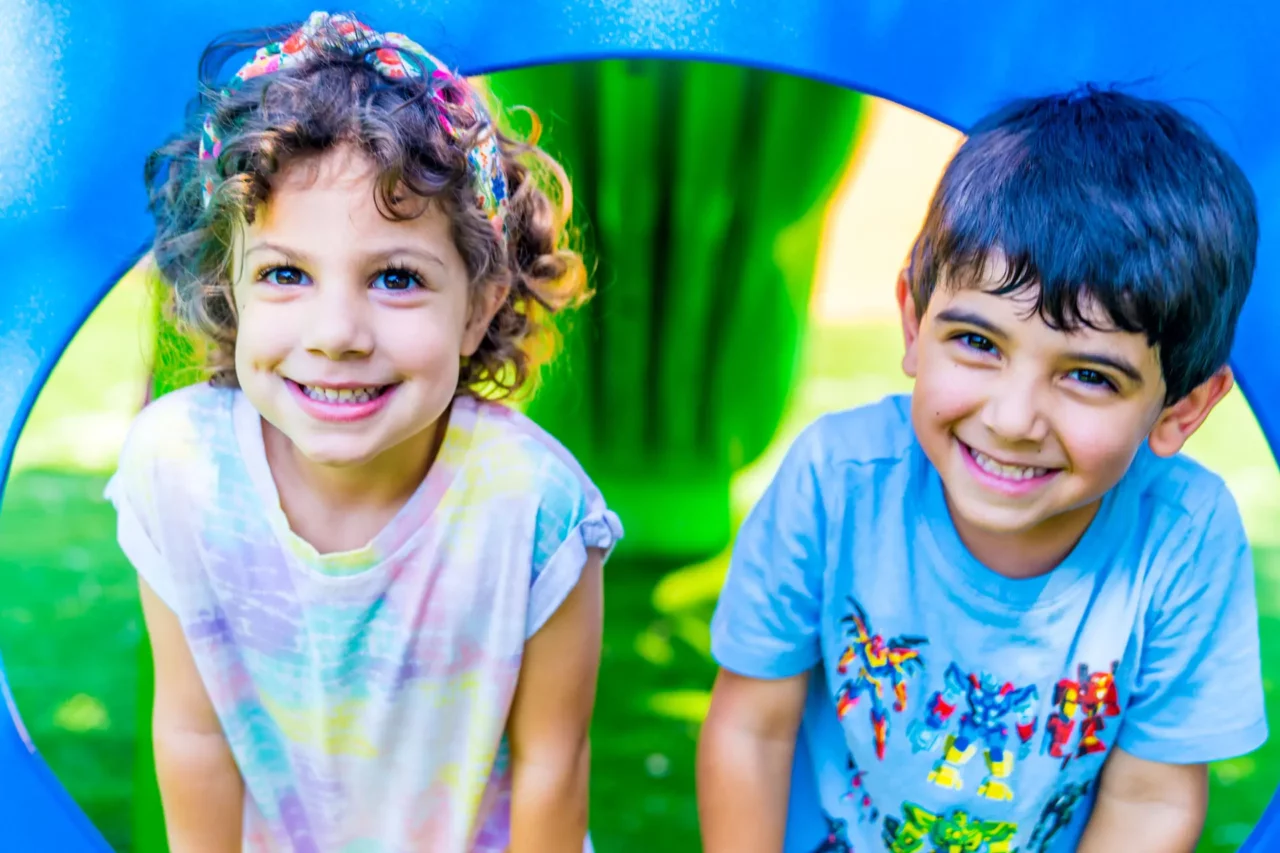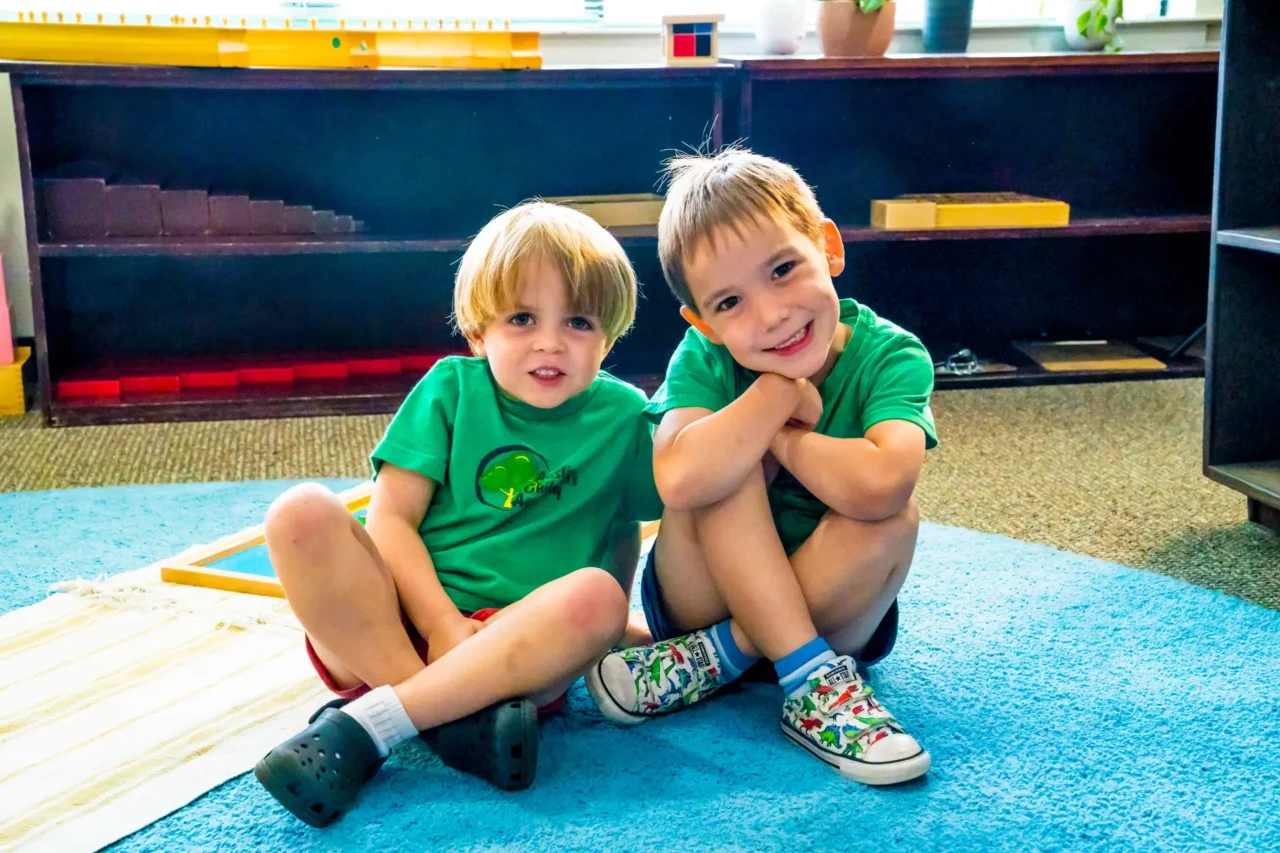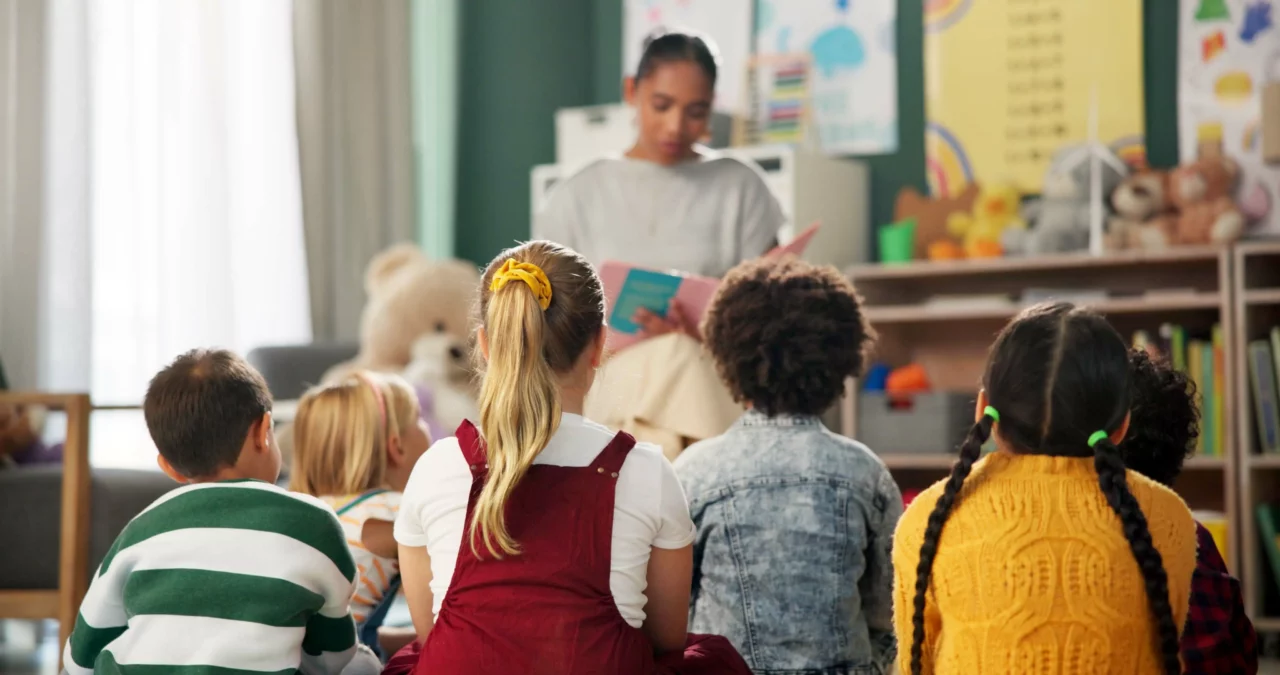
Dr. Montessori was a talented psychologist with a strong focus on childhood development. One of her main theories, called the Planes of Development, suggested that the way a student learns will change as they get older to represent their changing capabilities and priorities.
The First Plane: Physical Independence
Most Montessori schools are focused on the first plane of development, which occurs between the ages of zero and six. During this time, children are slowly coming to terms with the physical reality of the world around them. They need to learn to use their eyes, their hands, and the rest of their senses, all while realizing that they are biologically independent of their parents and the other members of their family.
Kids in the first plane of development have incredibly absorbent minds and tend to learn something from every interaction. This is why Dr. Montessori recommended carefully curated environments and a specific set of learning materials that are appropriate to this age group. Particular awareness should be placed on the sensitive periods, which are small windows in which children are more easily capable of learning specific skills.
The Second Plane: Mental Independence
The second plane of development occurs between the ages of six and twelve. If the child has been successfully raised, they should already have picked up the skills from their sensitive periods, making them ready to engage in normal coursework and other activities. But even if the child is behind on something like reading or fine motor control, they will still begin to experience the mental changes that occur during this time.
Mental independence occurs when the child starts to undertake abstract thinking. Although some kids are physically active during this period, many children prefer to focus on answering simple philosophical questions about how and why the world works as it does. Kids should be encouraged to ask questions, learn basic research skills, and generally develop healthy thinking habits that will follow them for the rest of their life. Students in this age group should not focus heavily on memorization or other skill sets that slow down their thinking and interest in their education.
The Third Plane: Social Independence
Between the ages of twelve and eighteen, children go through adolescence and begin the path to adulthood. This time period is chaotic, tumultuous, and difficult. Teachers and parents should have a high amount of sympathy for the struggles that adolescent children go through, especially in regards to their education and their social life.
One of the main focuses of teenagers is gaining social independence from both their parents and their peers. A kid this age knows how to use their hands and knows a little bit about the world works; now they want to craft their own identity and decide how they will spend their life. Education during this developmental period should focus on academic opportunities, important life experiences, and maintaining interest in lifelong passions or skills.
The Fourth Plane: Moral Independence
The fourth plane occurs between the ages of eighteen and twenty-four. These six years represent the conclusion of the student’s education and a chance to develop real opinions and attitudes about the world.
In addition to developing career skills and fueling passions, students in this age range should pay careful attention to moral and spiritual philosophy. Young adult students will want to think about the greater scope of the world and how they fit into it. Although strong mentors are vital during this period, it’s also important for the student to start looking for some of their own answers and expressing the independence that they have curated over the early parts of their life.
As both a parent and an educator, it’s important to set your child up for success during each of these developmental planes. Get in touch with Austin Children’s Academy to discuss a great education for your child’s first plane of development.





